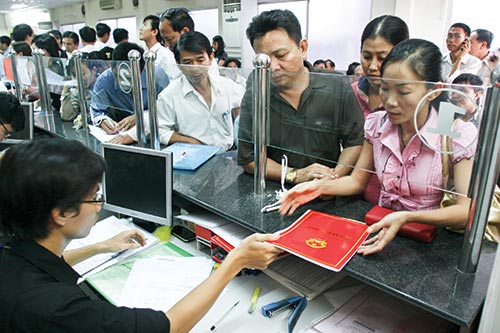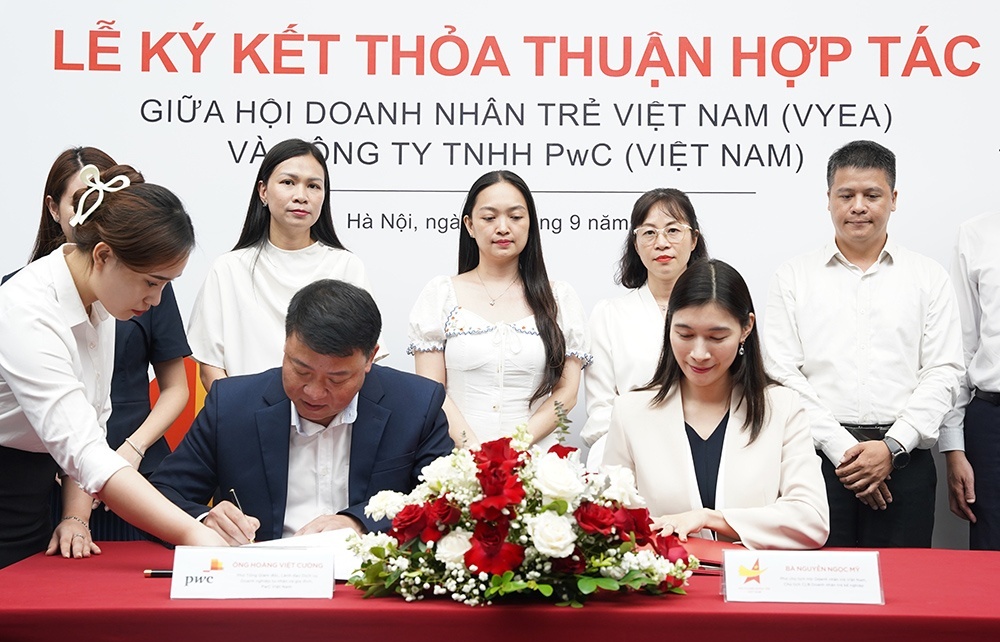Business registration unification remains a question in draft LOI
 |
| Veera Mäenpää, senior associate, PwC Legal, Ho Chi Minh City |
Enhancing Vietnam’s business and investment environment is a key priority for the government. An overhaul of company licensing processes is one of the means being worked on to bring this about. Revamping the licensing process will require large-scale changes to the current company and investment law regime.
The current Law on Investment 2005 is planned to be replaced by a new investment law, the first draft of which was prepared earlier this year. This draft Law on Investment (LOI) received a lot of interest when first published in April.
During the summer months, in a session which ended mid-August, the Standing Committee of the National Assembly discussed and raised issues in relation to the draft LOI. The Standing Committee stated that its key concern related to the regulations on investment in conditional sectors. Conditional sectors are listed in the current investment regulations as ‘sensitive’ sectors, such as trade and distribution, pharmaceuticals, banking and education. Given the concerns of the Standing Committee, it seems that the draft LOI will still have to undergo further, perhaps substantial revision before it is ready to be passed. The expectation is still that the National Assembly is likely to pass it in November 2014 and that it will take force from July 2015. Therefore any changes still required will need to be drafted, considered and agreed in quick succession.
The first draft of the amended LOI was published in April and the second in June. The latest draft was published in August. Some key content has changed radically between the April, June and August drafts. Whilst some changes are to be expected during drafting, it seems that the concept and detailed workings of the new licensing regime are open and still being developed.
Generally, under the current company licensing regime, domestic and foreign invested companies operate under different types of licences. Domestically invested companies operate under Business Registration Certificates and foreign invested companies under Investment Certificates. The motivation behind the revamping of the licensing processes started originally from the desire to do away with this division and the differentiation between the processes which apply to foreign and domestic investors. This desire was well reflected in the first draft of the LOI and also in the draft new law on enterprises (LOE), which is concurrently being prepared to replace the Law on Enterprises 2005, as they proposed a unified licence and unified licensing process for all investors, whether domestic or foreign. This would have effectively allowed the operation of ‘general commercial companies’ by foreign investors in Vietnam.

Each consecutive draft has changed the requirements for foreign business registration
The first LOI and LOE drafts proposed a unified two-step licensing process for both domestic and foreign invested companies – as a first step, all investors were proposed to obtain an Enterprise Registration Certificate (ERC) to set up a company. As a second step, all investors, whether domestic and foreign, were to be required to obtain an Investment Registration Certificate (IRC) if their investment was in a conditional sector.
The June LOI draft then partly reversed this proposal to unify the process and introduced a concept of ‘investment notice’ in which only foreign investors would need to file for any non-conditional sector investments. The rationale for partial reintroduction of some procedural difference between domestic and foreign invested company licensing was presumably the government’s historic and continuing desire to be able to track foreign investment streams into the country.
The August draft LOI is much more opaque in terms of its objective and the aim to unify the licensing processes is no longer self-evident.
The desire to track and also to control foreign investment to Vietnam is however more prominent in the latest draft. The concept of ‘investment notice’ has been removed, but instead, more stringent procedures are suggested for foreign investors.
Basically, the April and June drafts were essentially the same as to who would have needed to obtain an ERC – it would have been all investors. Similarly, the April and June drafts were the same as to who would have needed to obtain an IRC – it would have been all investors who invest in any conditional sector. The August draft instead requires foreign (but not domestic) investors to always obtain an IRC. In addition to the IRC, if this draft is passed in this form, before submitting the IRC application, foreign investors will need to obtain in-principle approval if their investment is in a conditional sector, requires land allocation or a ‘scientific technological evaluation’ or is a large manufacturing project with investment (i.e., total) capital over $15 million.
Under the August draft, domestic investors will need an ERC. They will also need to obtain an in-principle approval if their project requires land allocation or ‘scientific technological evaluation’ or is large manufacturing project with investment (i.e., total) capital over $15 million, but not if it is in a conditional sector. They can, but do not have to, obtain an IRC. Overall the proposed licensing regime and the picture that emerges from the latest draft LOI seems somewhat similar to the current regime, where different registration requirements apply depending on the origin of the investor.
The eighth session of the current National Assembly will commence in October. Given the concerns of the Standing Committee and the substantial changes to the new licensing process proposed in the various drafts, as, for example, outlined above, the legislators will have their work cut out for them over the next month to finalise these new laws. Investors and advisors alike are waiting with interest to see whether the changes will take the licensing process towards further unification or whether they will in fact essentially retain the status quo.
What the stars mean:
★ Poor ★ ★ Promising ★★★ Good ★★★★ Very good ★★★★★ Exceptional
Related Contents
Latest News
More News
- Priorities clear for cooperation between ASEAN and Australia (January 10, 2025 | 16:00)
- Benefits ahead for both Vietnam and and UK through latter’s CPTPP addition (January 10, 2025 | 14:35)
- Localities’ FDI efforts earn records (January 10, 2025 | 14:28)
- Singapore's August Global Partners invests in Gene Solutions (January 10, 2025 | 11:20)
- Next stage reached in carbon credit sphere (January 10, 2025 | 09:58)
- EAAIF invests $20 million in CME Solar to power Vietnam’s manufacturing sector (January 09, 2025 | 11:15)
- Vietnam sees uptick in European business sentiment (January 08, 2025 | 13:53)
- FDI disbursement hits record $25.35 billion in 2024 (January 08, 2025 | 10:17)
- German enterprises can offer pragmatic approach (January 07, 2025 | 18:00)
- Semiconductors can be pillar for growth (January 07, 2025 | 15:17)

 Tag:
Tag:




















 Mobile Version
Mobile Version